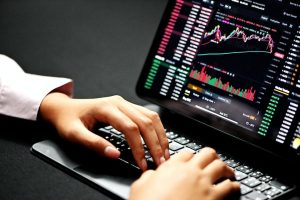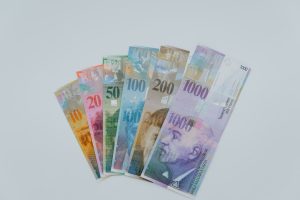The forex industry has grown significantly over the years, and it is currently the largest financial market in the world. The forex market is estimated to have a daily turnover of around $6.6 trillion, making it larger than the global stock market and the commodity market combined. The industry has become one of the most popular investment opportunities, attracting millions of traders from all over the world.
Forex trading is the buying and selling of different currencies in the world. It is a decentralized market, which means that there is no central exchange where all trades are conducted. Instead, the forex market operates through a network of banks, financial institutions, and individual traders who buy and sell currencies electronically.
The forex market is open 24 hours a day, five days a week, and is accessible from anywhere in the world. This makes it an attractive investment opportunity for traders who want to take advantage of the global financial market. The industry has grown in popularity due to its accessibility, high liquidity, and the potential for high returns.
The forex industry caters to a wide range of traders, from individuals to large financial institutions. Individual traders can access the forex market through a broker, who acts as an intermediary between the trader and the market. The broker provides the trader with a trading platform, which allows them to buy and sell currencies.
Institutions, on the other hand, can access the forex market directly through interbank trading. Interbank trading involves large financial institutions trading currencies with each other. This type of trading is not accessible to individual traders, as it requires large sums of money and specialized knowledge.
The forex industry has also seen a significant increase in the use of automated trading systems. These systems use algorithms to analyze market data and make trading decisions. Automated trading systems have become popular among traders because they can analyze large amounts of data quickly and make trades based on predefined rules.
The forex industry is also known for its high leverage. Leverage allows traders to control large positions with a small amount of capital. This means that traders can potentially make large profits with a small investment. However, leverage also carries a high level of risk, as traders can incur significant losses if their trades do not go as planned.
The forex industry has also seen significant growth in the number of retail traders. Retail traders are individuals who trade forex as a hobby or for supplemental income. The rise of retail trading has been fueled by the availability of online trading platforms, which allow individuals to trade from the comfort of their own homes.
The forex industry has also seen an increase in regulation in recent years. Regulatory bodies, such as the Financial Conduct Authority (FCA) in the UK and the Commodity Futures Trading Commission (CFTC) in the US, have introduced stricter regulations to protect traders from fraud and ensure that brokers operate within a framework of best practices.
In conclusion, the forex industry is a vast and dynamic market that has grown significantly over the years. With a daily turnover of around $6.6 trillion, it is the largest financial market in the world. The industry caters to a wide range of traders, from individuals to large financial institutions, and offers high liquidity, accessibility, and the potential for high returns. However, the industry also carries a high level of risk, and traders must be aware of the potential pitfalls before investing their money.






